Neutering
If you’re considering neutering, we’re happy to discuss the best options for your pet at their current stage of life.
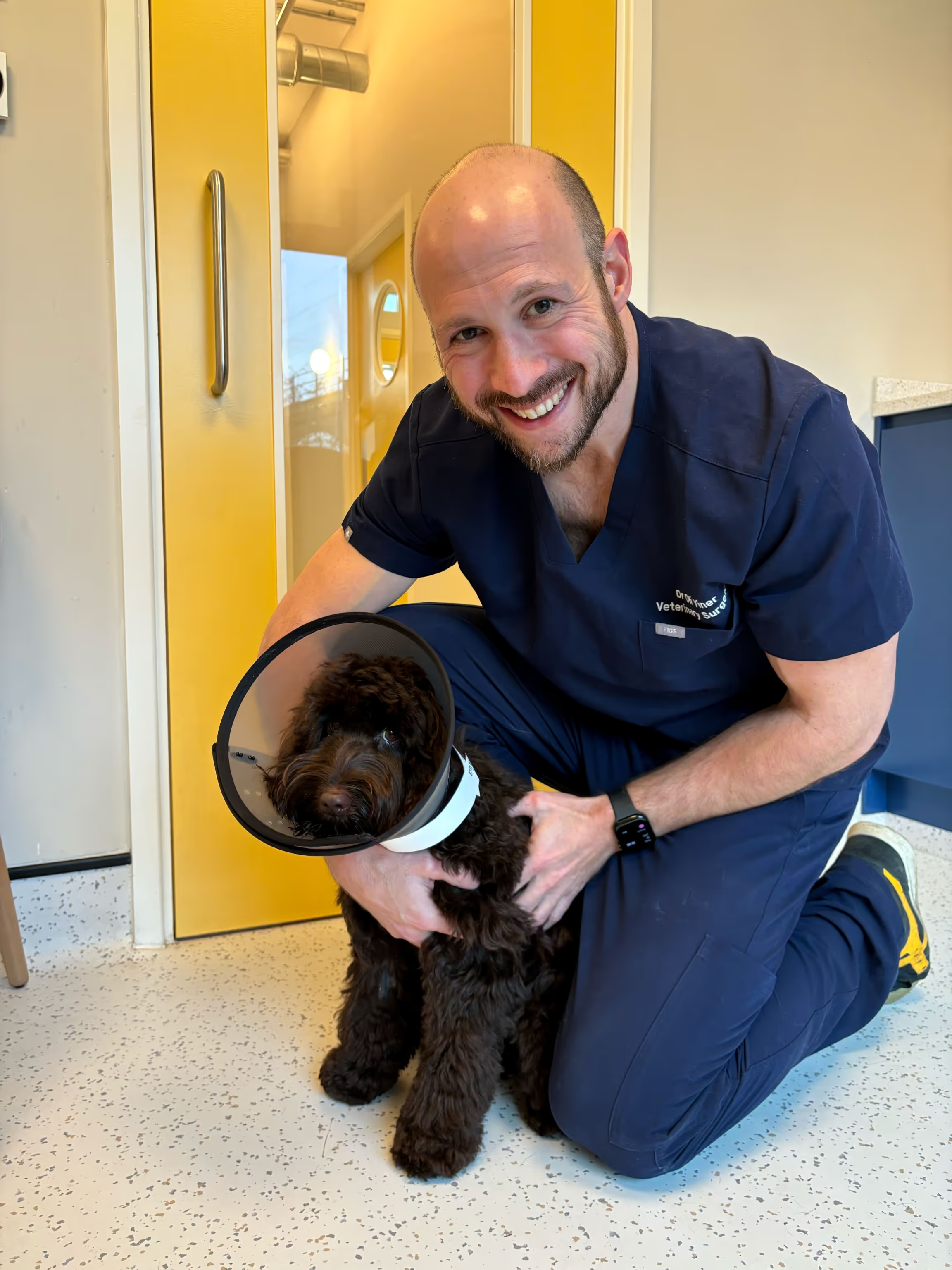
If you’re considering neutering, we’re happy to discuss the best options for your pet at their current stage of life.


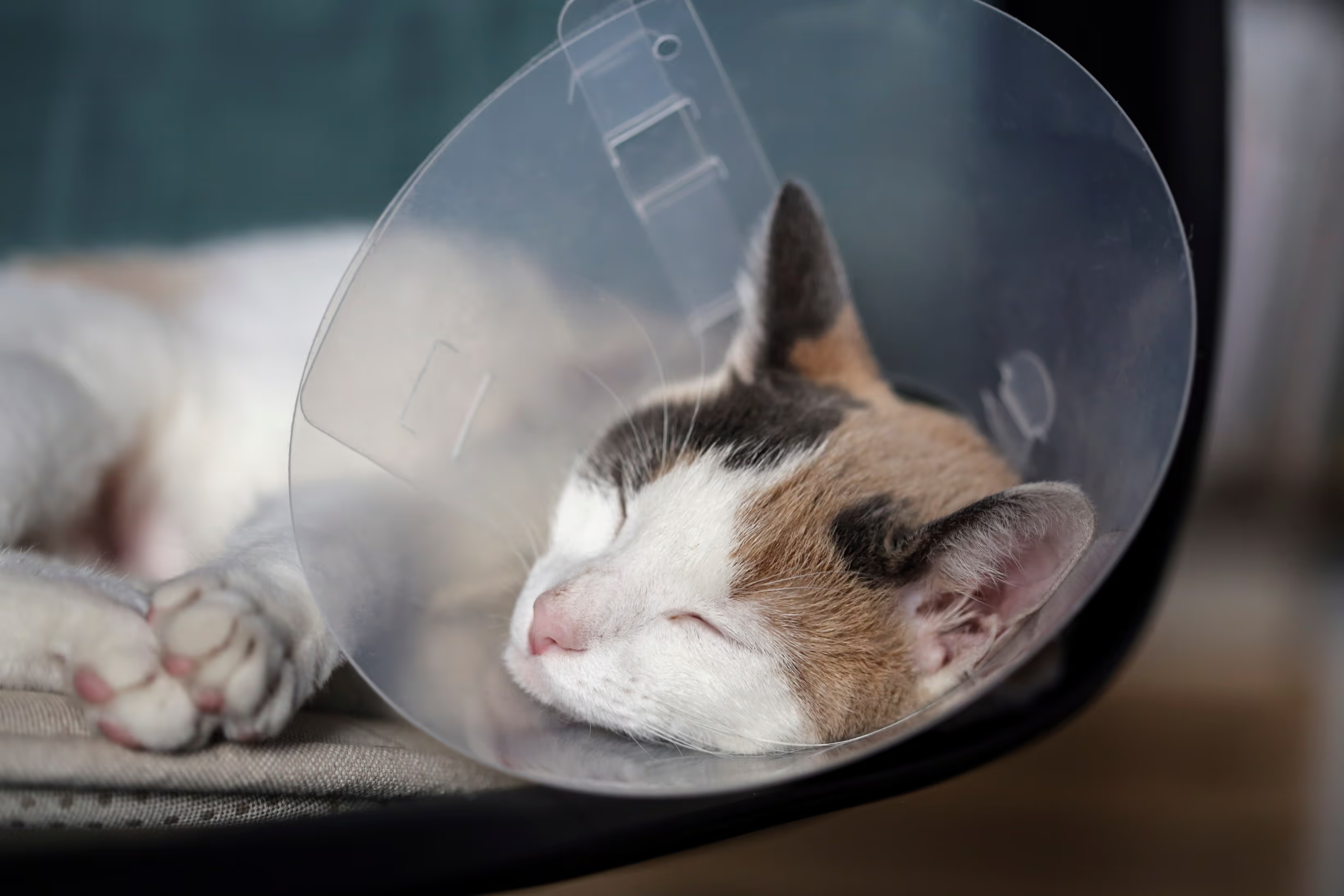
Neutering involves removing the reproductive organs from your pet so that they can no longer breed. The surgery is called a spay for females, and a castration for males.
Getting your pet neutered is an important decision and it’s smart to have much information as possible. At Hello Vet, we’ll talk you through the procedure, the estimated recovery time, any potential risks, and what to expect afterward, so you can feel confident in your decision-making.
You are the best comfort for your pet. Hello Vet is the first clinic in the UK designed to keep you and your pet together when they need a procedure. If you wish, you can be present when we prepare them for anaesthesia, allowing you to reassure them as they fall asleep, and be there with them as soon as they wake up.
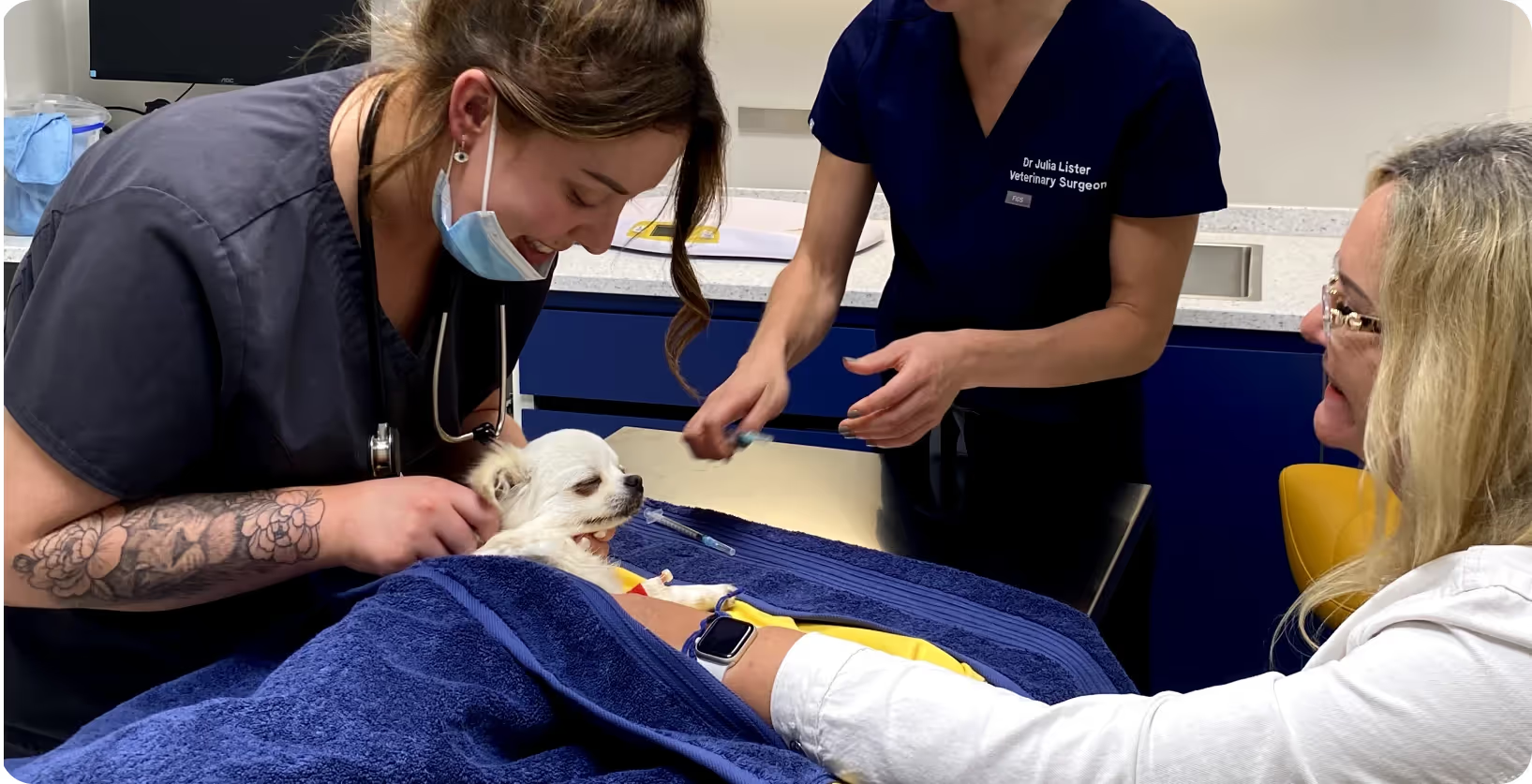
Castrating your male dog prevents them from reproducing and can help with certain challenging behaviours. It’s a decision that depends on a few individual factors, especially for puppies, so we recommend chatting with our clinical team to help you decide what’s right for your dog.
Spaying your female dog prevents them from reproducing and helps protect against certain cancers. We recommend speaking with our clinical team about the best timing and approach for your dog.
Castrating your male cat prevents them from reproducing and can help reduce unwanted behaviours like roaming and urine spraying. For kittens, castration usually takes place around four to six months old, once they’ve had their primary vaccinations.
Spaying your female cat or kitten prevents them from having offspring and lowers the risk of certain cancers. We recommend neutering for all female cats, and we’re happy to talk through the timing and process with you.
Besides removing your pet's ability to breed, additional potential benefits include a reduced risk of roaming behaviour, testicular cancer, and certain types of aggressive behaviour in males and a reduced risk of pyometra, attracting males, phantom pregnancies, and mammary cancer in females.
Yes, we offer laparoscopic spays at our clinic. This minimally invasive procedure uses small incisions and specialized instruments, which can lead to quicker recovery times and less pain for your pet. Laparoscopic spaying is a great option for pet owners looking for a less traumatic surgical experience for their animals. Please contact us for more details on scheduling and pricing.
After your pet's surgery, you can expect some grogginess as the anesthesia wears off. It's normal for them to be a bit disoriented. You should monitor the surgical site for any signs of swelling or discharge. Most pets will need to rest for a few days and may require a cone to prevent them from licking the incision. Follow-up appointments may be necessary to ensure proper healing.
Neutering is not strictly necessary, but it is highly recommended for various reasons. It helps control the pet population, reduces the risk of certain health issues, and can improve behavior. Many veterinarians advocate for neutering as a responsible choice for pet owners. Discuss with your vet to understand the best options for your pet's health and well-being.

We've redesigned vet care, from your pet's perspective. Calming care in clinics purpose-built for anxious pets.

Instant WhatsApp advice and same-day appointments. We team up with you at every step because you know your pet best.

“We built Hello Vet on the belief that fully cared-for clinicians provide better care for every pet.”
Dr. Christian LeVan, Clinical Director

Free advice over WhatsApp, provided by our clinical team. We've saved our clients thousands in fees.
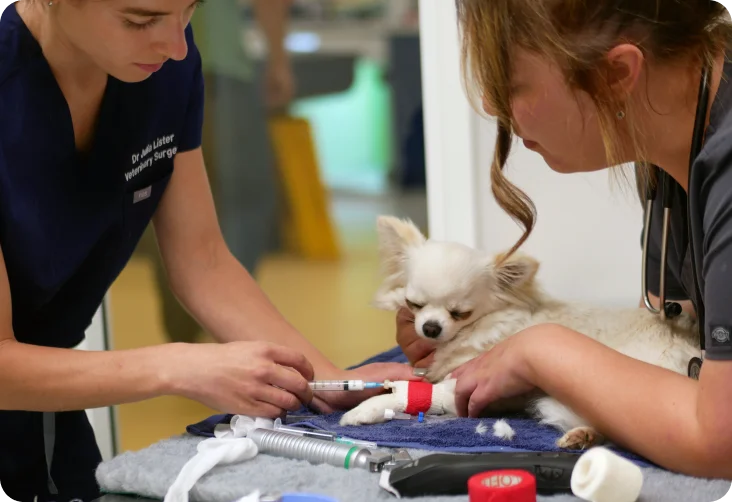
We’re the UK’s first vet to let you stay with your pet during procedures, when they need you most.

Our clinics are designed by vets to keep anxious pets calm. Sunken scales, separate waiting areas, treats. Open 7 days a week.
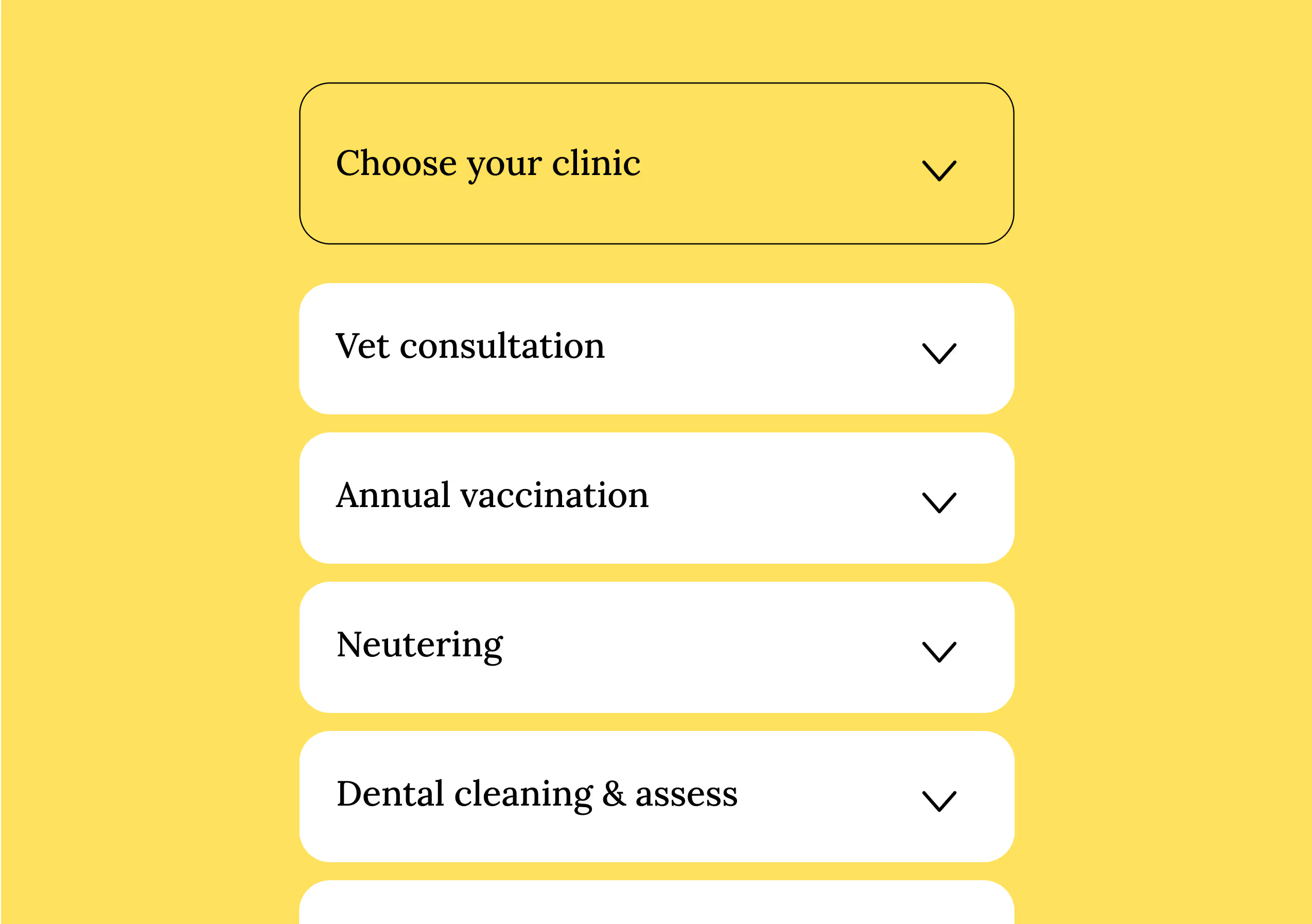
Our prices are public, we share cost estimates upfront and we offer contextualised care, exploring treatment options for every budget.